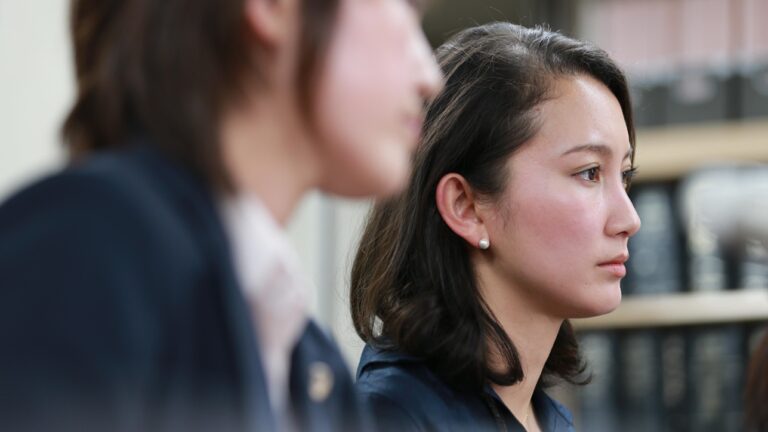
Speaking out about sexual assault is a difficult process, in part because people don’t always believe accusations. Having to stand up to someone in a position of power with considerably more resources makes it even harder. Yet there are those who know that they must act to prevent others from suffering similar fates, and that challenging someone with authority is even more vital. The documentary Black Box Diaries chronicles filmmaker Shiori Itō’s fight for justice against her assailant, celebrated Japanese journalist Noriyuki Yamaguchi.
As a journalist, Itō understands the way that reporting works and is well-trained in gathering sources and evidence. That serves her well in trying to piece together what happened to her the night she was raped by Yamaguchi. She collects video footage of her being carried out of a car into a hotel by Yamaguchi, and has data to back up the timeline she has constructed which names him as the perpetrator and backs up the claims she has to support how the night unfolded. Unsurprisingly, her claims are met with disbelief from many, who aim vitriol at her as an unreliable woman just seeking attention.
Early on in Black Box Diaries, Itō recalls the way that people reacted to the first press conference she gave and how the top button of her shirt being open caused a very negative and accusatory response. She also notes the close relationship between Yamaguchi and then-Prime Minister Shinzo Abe, which leads to Yamaguchi not even being arrested even after Itō came forward with her claims. Some people get special treatment, and it’s especially hard for society to believe a woman when she’s speaking up against a powerful man.
Itō brings a tremendous resilience to this film, both in front of and behind the camera. She narrates many of its events, and opens the film with a note that the content within it may be triggering for some, so she recommends closing your eyes and taking a deep breath, advice she’s previously received from others. At the film’s SXSW premiere, she excitedly received a question from a journalism student, thrilled to see interest from the next generation of intrepid truth-seekers in her film about doing just that. Her passion for her chosen profession is infectious, all the more admirable given how she herself has had to become part of the story in order to try to find some sort of closure and justice for what she endured.
Itō speaking directly to the camera at numerous points throughout the film is a helpful device that makes her feel even more relatable, fluent in English and aware of the audience she wants to communicate with, while her fight in Japan involves an entirely different language and conversation. There’s just enough explanation about how the MeToo movement materialized and evolved in Japan to provide American and international audiences with a sense of what’s different and how that has affected her own battle. She understands what context people might need to fully appreciate what she’s been through and what it is that she’s fighting to achieve.
Though Itō’s experiences are very personal, she shares so much of herself with audiences in this honest and disarming look at her journey. It starts from a place of trauma and, while it has its highs, certainly also includes its devastating lies. In choosing to come forward and speak out, Itō serves as an inspiration to others, showing how something that happened to her in Japan had affected her life and providing hope and optimism to those who have been through similar experiences of subjugation anywhere in the world.
Grade: B+
Check out more of Abe Friedtanzer’s articles.
Black Box Diaries makes its Texas premiere in the Festival Favorites section at the 2024 SXSW Film and TV Festival.

